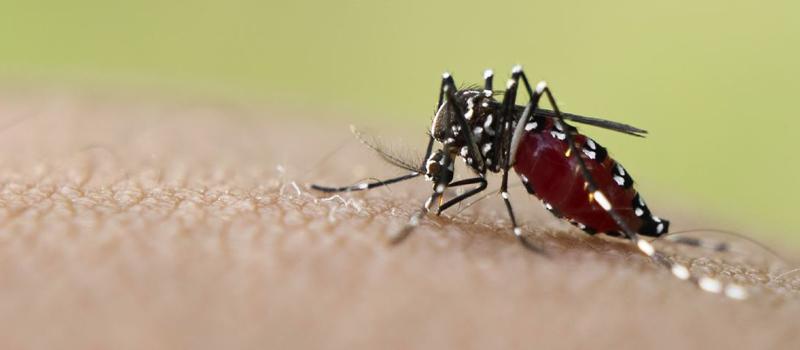Did you Know that Elephantiasis is a Disease Spread by Mosquitoes?
Posted by Mosquito Squad
December 20, 2023
It is widely known that mosquitoes can spread dangerous diseases. In the United States, Eastern Equine Encephalitis and West Nile virus are an annual concern. Zika virus was made famous after an outbreak a few years back, while yellow fever, chikungunya, and dengue fever are a persistent problem in many countries. Malaria is responsible for hundreds of thousands of deaths every year, despite being eradicated from the United States in the 1950s.
They say, “out of sight, out of mind” and it could not be truer than when understanding mosquito diseases in other countries. There are a handful of mosquito-borne illnesses you’ve heard of, whether they are local or not. Those diseases can be viral, parasitic, or bacterial. However, there are many you are not aware of too. Tropical and subtropical countries have more mosquito diseases to contend with than we do here in the States.
Elephantiasis is one of them. You may have heard of the disease, but you may not have learned how the disease is spread. Known and named for the swelled limbs that develop thick elephant-like skin, you likely have seen images of someone afflicted. While the images were seared in your brain, the details of what it is and how you get it are unlikely to have stuck if you were a child still and weren’t studying to be a doctor or entomologist.
 What is Elephantiasis?
What is Elephantiasis?
A nickname for lymphatic filariasis, Elephantiasis is a very rare condition caused by many bites from mosquitoes. The mosquitoes pass roundworm larvae into the bloodstream, where they can live and grow for years. The roundworm larvae finish maturing inside your lymphatic system, where they cause a great deal of damage. The damage to your lymph system is what causes the distinct swelling in the limbs. The types of roundworms that can cause this are:
- Wuchereria bancrofti
- Brugia malayi
- Brugia timori
The roundworms are namely found in Africa, India, South America, and Southeast Asia, making Elephantiasis a tropical disease.
Symptoms of Elephantiasis
The lymph system is responsible for moving excess fluid and fighting infections. The resulting limb swelling of these roundworms damaging your lymph system usually occurs in the legs, arms, breasts, or genitals. Elephantiasis can also reduce your immune function. Those with Elephantiasis may more easily get bacterial infections on their skin which will become thick, dry, and maybe even ulcerated.
What is Your Risk for Elephantiasis?
According to WebMD, infection usually would mean many mosquito bites over a long period of time in one of the five countries where the roundworms are found. The risk for Elephantiasis for tourists and visitors is quite low.
To reduce the risk for Elephantiasis, it is best to avoid mosquito bites.
Treatment for Elephantiasis
There are several options for antiparasitic drugs to treat Elephantiasis – to eliminate the roundworms invading your bloodstream. To manage symptoms, a person can use antihistamines, analgesics, antibiotics, gentle regular washing, moisturizing, elevating the swollen limbs, healthy habits to support the lymph system, and in rare cases, surgery. Unfortunately, Elephantiasis can cause severe disability and can often lead to depression. Mental health support can be beneficial.
While you can travel to the affected countries for vacation-length visits without too much worry about Elephantiasis, it is still a good idea to avoid mosquito bites while there. Use repellent when out in nature, wear long sleeves and pants when possible, and make sure you sleep under a mosquito net.
